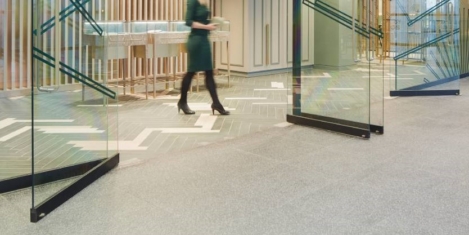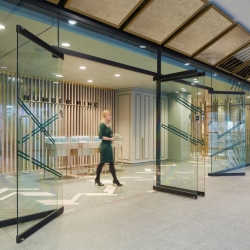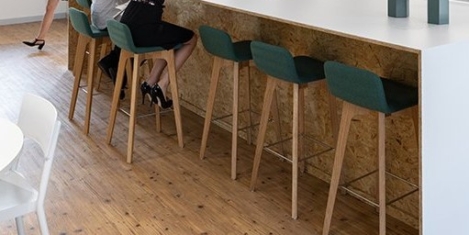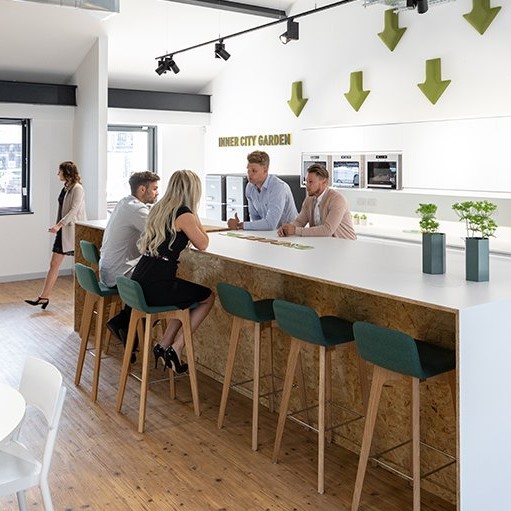To provide the best experiences, we use technologies like cookies to store and/or access device information. Consenting to these technologies will allow us to process data such as browsing behaviour or unique IDs on this site. Not consenting or withdrawing consent, may adversely affect certain features and functions.
The technical storage or access is strictly necessary for the legitimate purpose of enabling the use of a specific service explicitly requested by the subscriber or user, or for the sole purpose of carrying out the transmission of a communication over an electronic communications network.
The technical storage or access is necessary for the legitimate purpose of storing preferences that are not requested by the subscriber or user.
The technical storage or access that is used exclusively for statistical purposes.
The technical storage or access that is used exclusively for anonymous statistical purposes. Without a subpoena, voluntary compliance on the part of your Internet Service Provider, or additional records from a third party, information stored or retrieved for this purpose alone cannot usually be used to identify you.
The technical storage or access is required to create user profiles to send advertising, or to track the user on a website or across several websites for similar marketing purposes.
 Throughout the pandemic, we have had to constantly adapt to new models of work and a new working culture. And what makes this process even more challenging is that we’re having to work against a backdrop of uncertainty at every turn. Business leaders that are emerging from the pandemic successfully have been clear on priorities throughout and know how to balance them. This is certainly easier said than done but is integral to leadership as we enter the next chapter of workplace transformation. (more…)
Throughout the pandemic, we have had to constantly adapt to new models of work and a new working culture. And what makes this process even more challenging is that we’re having to work against a backdrop of uncertainty at every turn. Business leaders that are emerging from the pandemic successfully have been clear on priorities throughout and know how to balance them. This is certainly easier said than done but is integral to leadership as we enter the next chapter of workplace transformation. (more…)







 There’s no one-size-fits-all approach to work. Every business will need to test, iterate, and refine approaches depending on their team’s needs. However, after the once in a generation changes in the last year, and all of the talk about the office of the future, setting a digital-first baseline is a key first step. This means embracing a mindset shift to thinking of the physical office not as the HQ, but as just one tool at your organisation’s disposal. The HQ, meanwhile, becomes digital.
There’s no one-size-fits-all approach to work. Every business will need to test, iterate, and refine approaches depending on their team’s needs. However, after the once in a generation changes in the last year, and all of the talk about the office of the future, setting a digital-first baseline is a key first step. This means embracing a mindset shift to thinking of the physical office not as the HQ, but as just one tool at your organisation’s disposal. The HQ, meanwhile, becomes digital. 
 There are no prizes to be won for saying that the modern workplace is already markedly different from those we have known in recent decades. As remote and flexible working practices have become more common, the role of the office has already begun to evolve – the pace of change has been greatly accelerated by the pandemic, which has resulted in a rethink among many organisations about their real estate needs.
There are no prizes to be won for saying that the modern workplace is already markedly different from those we have known in recent decades. As remote and flexible working practices have become more common, the role of the office has already begun to evolve – the pace of change has been greatly accelerated by the pandemic, which has resulted in a rethink among many organisations about their real estate needs. 
 Pressing the ‘reset’ button is never easy. But I’m a firm believer that, once we do, we become much less averse than we perhaps expected to the change it inevitably brings. This is particularly true of the past eighteen months. From all of the sadness and hardship endured, we are beginning to emerge into a new, changed way of living. One that is both familiar and altogether different. The dichotomy is particularly evident in our workplaces. For many sections of the economy, the office was the ecosystem of our daily working lives. Initial questions of whether the office would survive quickly fell by the wayside, and a more interesting, nuanced, debate of what we want the office to be began.
Pressing the ‘reset’ button is never easy. But I’m a firm believer that, once we do, we become much less averse than we perhaps expected to the change it inevitably brings. This is particularly true of the past eighteen months. From all of the sadness and hardship endured, we are beginning to emerge into a new, changed way of living. One that is both familiar and altogether different. The dichotomy is particularly evident in our workplaces. For many sections of the economy, the office was the ecosystem of our daily working lives. Initial questions of whether the office would survive quickly fell by the wayside, and a more interesting, nuanced, debate of what we want the office to be began. 
 At a recent
At a recent 
 According to research, nearly
According to research, nearly 
 Employee experience has never been so high on the corporate agenda; with recent figures finding
Employee experience has never been so high on the corporate agenda; with recent figures finding 
 In 2008, the philosopher and ecologist
In 2008, the philosopher and ecologist 


 At this time of year, with events such as Happiness at Work Week and
At this time of year, with events such as Happiness at Work Week and 
 The debate about the workplace and the future of work gets more interesting by the week. In the last few days alone, I’ve listened in on three great speakers talking about the opportunities, challenges, nuances and complexities of it all in a way that has been all but impossible in the past 18 months. In addition, Nigel Oseland has published
The debate about the workplace and the future of work gets more interesting by the week. In the last few days alone, I’ve listened in on three great speakers talking about the opportunities, challenges, nuances and complexities of it all in a way that has been all but impossible in the past 18 months. In addition, Nigel Oseland has published 








November 11, 2021
Hybrid working is both a challenge and opportunity for comms firms
by Andrew Walker • Comment, Flexible working, Technology